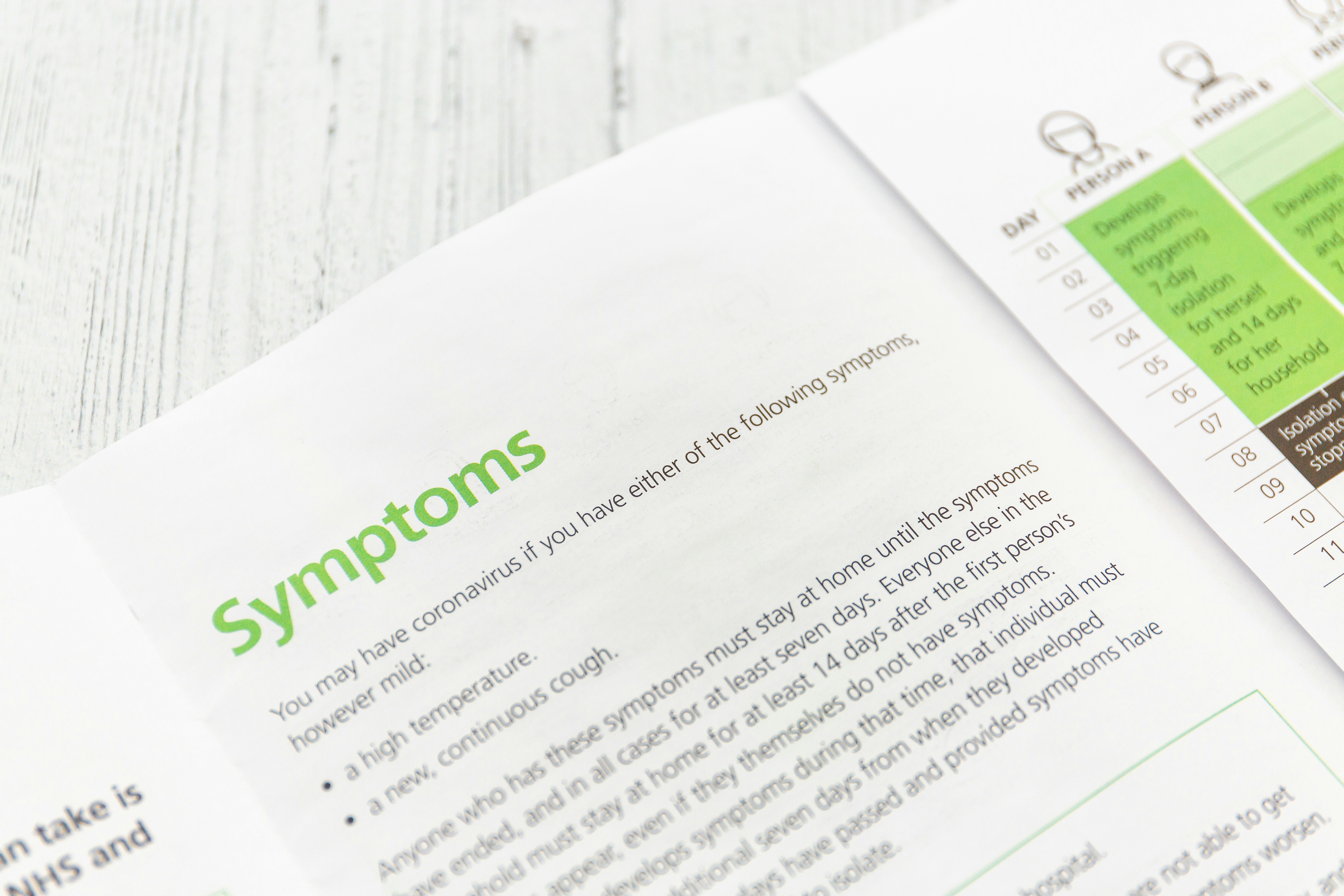Have you ever wondered why certain days feel heavier than others? Or why a simple meal can leave you feeling bloated and lethargic? These fleeting thoughts can be frustrating, but tracking your symptoms might shed light on what’s really going on.
What is a Symptom Tracker?
You might be asking yourself: what exactly is a symptom tracker? At its core, it’s a tool you can use to monitor various symptoms over time. Think of it as your personal health journal where you jot down how you’re feeling, any changes in your routine, and potential triggers that might be affecting your wellbeing.
This isn’t just about recording numbers or feeling overwhelmed by medical jargon; it’s a straightforward way to observe the patterns in your life that could help identify the root causes of any discomfort you’re experiencing.
Why Track Symptoms?
Tracking your symptoms can provide clarity amidst the chaos of daily life. It’s easy to dismiss discomfort as a passing phase or stress but maintaining a record allows you to identify trends and potential lifestyle adjustments that can lead to improvement. Observing the links between your diet, activity levels, stress, and overall health can empower you to take control of your lifestyle.
- Awareness: You’ll develop a better understanding of your body and mind.
- Empowerment: Having data at your fingertips gives you the ability to advocate for your health.
- Insight for Professionals: Sharing your tracker with healthcare providers can lead to more informed decisions regarding your care.
How to Start a Symptom Tracker
Starting a symptom tracker doesn’t have to be complex. In fact, keeping it simple is often the best approach. Here are a few steps to get you started.
1. Choose Your Format
You can choose a physical journal, a simple spreadsheet, or even an app on your smartphone. Select whatever method feels most comfortable and manageable for you. Here’s a quick look at the pros and cons of each option:
| Format | Pros | Cons |
|---|---|---|
| Physical Journal | Tangible, personal feel | Can be less organized |
| Spreadsheet | Easily edit and organize | Requires digital literacy |
| Mobile App | Convenience, often user-friendly | Limited by app features |
2. Identify What to Track
Next, decide on specific symptoms you want to monitor. It’s vital to be intentional about what you are tracking; focus on those symptoms that seem most relevant to your usual patterns. Common elements to consider include:
- Physical Symptoms: Pain level, digestive issues, fatigue, sleep disturbances.
- Emotional Symptoms: Mood swings, anxiety levels, feelings of stress.
- Lifestyle Factors: Changes in diet, exercise frequency, hours of sleep.
Remember, this list isn’t exhaustive—feel free to add whatever resonates with you.
3. Create an Infrastructure
Set up your tracker in a way that allows you to easily enter information. For instance, if you’re using a spreadsheet, you may want to create columns for the date, the symptoms experienced, factors that may have contributed (like diet or stress), and how you responded.
4. Be Consistent
Consistency is key in any tracking process. Make it a daily habit to jot down your experiences. Whether it’s first thing in the morning or just before bed, choose a time that integrates well into your routine.
What to Look For in Your Data
Once you’ve tracked your symptoms for a period of time—say a few weeks—you can start reviewing the data. This is where the magic happens.
Identifying Patterns
As you look through your entries, you might begin to notice patterns. For example, if you consistently experience fatigue after eating certain foods, it’s a sign you may want to reevaluate your diet.
- Example Table of Tracked Symptoms
| Date | Symptoms | Triggers | Mood | Sleep Quality |
|---|---|---|---|---|
| 2023-08-01 | Fatigue, Headache | Skipped breakfast | Anxious | 6 hours |
| 2023-08-02 | Stomach Pain | Spicy food | Neutral | 8 hours |
| 2023-08-03 | No symptoms | N/A | Happy | 7 hours |
Reflecting on Contributing Factors
Consider how your lifestyle impacts your symptoms. Factors such as sleep quantity, stress levels, and even social interactions can significantly affect your wellbeing. If you notice a spike in anxiety on days when you have less sleep, that’s valuable insight.
Making Lifestyle Adjustments
Now that you have some data, what can you do with it? Making lifestyle adjustments can feel daunting, but it doesn’t have to be. Here are some suggestions to get you started.
1. Diet Tweaks
If specific foods keep cropping up as triggers, consider adjusting your diet gradually. Maybe you can try eliminating one potential irritant at a time, like lactose or gluten, to see if it makes a difference.
2. Exercise Moderation
Exercise can have profound effects on both physical and mental health. If you find that certain activities amplify your symptoms, you might want to experiment with moderation or mix it up with gentler forms of exercise like yoga or walking.
3. Stress Management
Stress plays a significant role in how you feel. Explore different stress-reduction techniques—be it meditation, journaling, or simply setting aside time for hobbies that bring you joy.

The Role of Health Professionals
Having data on your side can aid communication with healthcare professionals. When you present them with your symptom tracker, you provide tangible evidence of your experiences—this can be a stepping stone toward more targeted treatments.
Building a Team
Incorporating a variety of health professionals can offer a more holistic approach. Here are some specialists you might consider reaching out to based on your tracked symptoms:
- Primary Care Physician for physical symptoms.
- Therapist or Counselor if emotional health is a concern.
- Nutritionist to evaluate dietary factors.
- Physical Trainer for exercise-related adjustments.
Open Communication
Your health journey is unique, and being open with your healthcare providers is crucial. Ensure they understand the context behind the data you’ve collected. Ask questions and advocate for the support you need.
Staying Motivated
Let’s be real: tracking your symptoms over time requires commitment, and it’s easy to lose steam. Here are a few tips to keep your motivation high:
Celebrate Small Wins
Recognizing positive changes—no matter how small—can keep you motivated. If a week passes without significant symptoms or if you manage to implement a healthier meal choice, celebrate that victory.
Set Realistic Goals
Rather than overwhelming yourself with grand changes, set small, achievable goals. This approach can help prevent burnout and keep you from feeling discouraged.
Seek Support
Consider finding a friend or a family member who understands what you’re going through. Having someone to share experiences with can make this journey far less lonely.

Embracing Imperfection
Tracking your symptoms will not be perfect. Some days will be easier than others, and it’s okay to have lapses. The goal isn’t to record every tiny detail but to create a tool that ultimately enhances your well-being.
Be Kind to Yourself
As you navigate your health journey, it’s essential to practice self-compassion. If you miss a few entries or face a setback, remember that progress isn’t linear. Your efforts to understand yourself better are what count.
Growing Through the Process
Each time you engage with your symptom tracker, you’re participating in an ongoing conversation with yourself. Over time, this process can lead to profound insights and a clearer understanding of what makes you feel your best.
Conclusion
Keeping a symptom tracker creates a pathway to understanding your body and mind better. It allows you to identify patterns and implement changes that can significantly improve your lifestyle.
As you craft this documentation of your health journey, remember it’s not just a series of notes; it’s a dialogue with yourself, a way to become your own advocate. You hold the keys to enhance your well-being, and this tracker can help you start unlocking those doors. Embrace the process and let it guide you toward a more balanced life. Your health is worth the effort.

